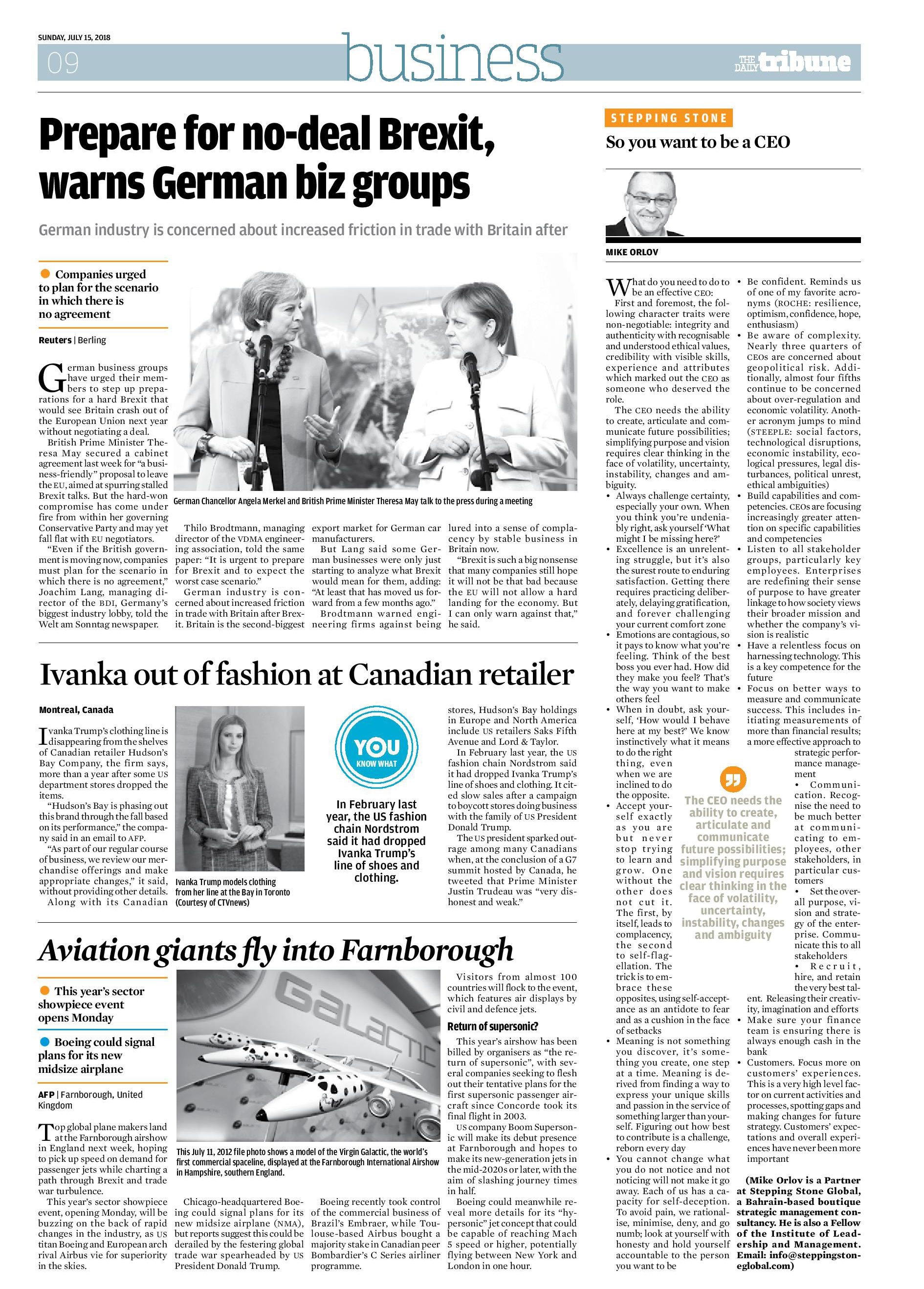What do you need to do to be an effective CEO: First and foremost, the following character traits were
non-negotiable: integrity and authenticity with recognisable and understood ethical values, credibility with visible skills, experience and attributes which marked out the CEO as someone who deserved the role.
The CEO needs the ability to create, articulate and communicate future possibilities; simplifying purpose and vision requires clear thinking in the face of volatility, uncertainty, instability, changes and ambiguity.
- Always challenge certainty, especially your own. When you think you’re undeniably right, ask yourself ‘What
might I be missing here?’ - Excellence is an unrelenting struggle, but it’s also the surest route to enduring
satisfaction. Getting there requires practicing deliberately, delaying gratification, and forever challenging
your current comfort zone - Emotions are contagious, so it pays to know what you’re feeling. Think of the best
boss you ever had. How did they make you feel? That’s the way you want to make others feel - When in doubt, ask yourself, ‘How would I behave here at my best?’ We know instinctively what it means to do the right thing, even when we are inclined to do the opposite.
- Accept yourself exactly a s yo u a re b u t n e v e r
stop trying to learn and g r o w. O n e without the o t h e r d o e s n o t c u t i t . The first, by itself, leads to
complacency, the second to self-flagellation. The trick is to embrace these opposites, using self-acceptance
as an antidote to fear and as a cushion in the face of setbacks - Meaning is not something you discover, it’s something you create, one step at a time. Meaning is derived from finding a way to express your unique skills
and passion in the service of something larger than yourself. Figuring out how best to contribute is a challenge, reborn every day - You cannot change what you do not notice and not noticing will not make it go
away. Each of us has a capacity for self-deception. To avoid pain, we rationalise, minimise, deny, and go numb; look at yourself with honesty and hold yourself accountable to the person you want to be - Be confident. Reminds us of one of my favorite acronyms (ROCHE: resilience, optimism, confidence, hope, enthusiasm)
- Be aware of complexity. Nearly three quarters of CEOs are concerned about geopolitical risk. Additionally,
almost four fifths continue to be concerned about over-regulation and economic volatility. Another acronym jumps to mind (STEEPLE: social factors, technological disruptions, economic instability, ecological pressures, legal disturbances, political unrest, ethical ambiguities) - Build capabilities and competencies. CEOs are focusing increasingly greater attention on specific capabilities and competencies
- Listen to all stakeholder groups, particularly key employees. Enterprises are redefining their sense
of purpose to have greater linkage to how society views their broader mission and whether the company’s vision is realistic - Have a relentless focus on harnessing technology. This is a key competence for the future• Focus on better ways to measure and communicate success. This includes initiating
measurements of more than financial results; a more effective approach to strategic performance management - Communication. Recognise the need to be much better at communicating to employees, other stakeholders, in particular customers
- Set the overall purpose, vision and strategy of the enterprise. Communicate this to all stakeholders
- R e c r u i t , hire, and retain the very best talent. Releasing their creativity, imagination and efforts
- Make sure your finance team is ensuring there is always enough cash in the bank
- Customers. Focus more on customers’ experiences. This is a very high level factor on current activities and
processes, spotting gaps and making changes for future strategy. Customers’ expectations and overall experiences have never been more important

